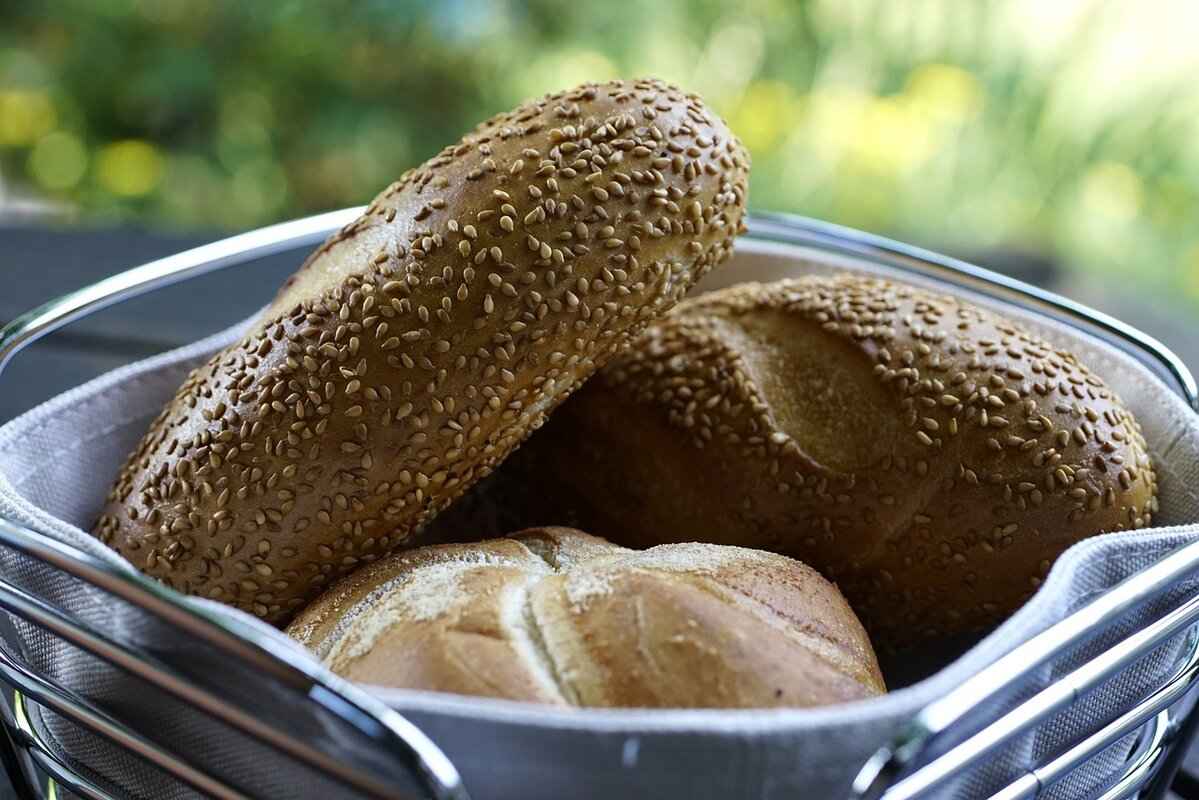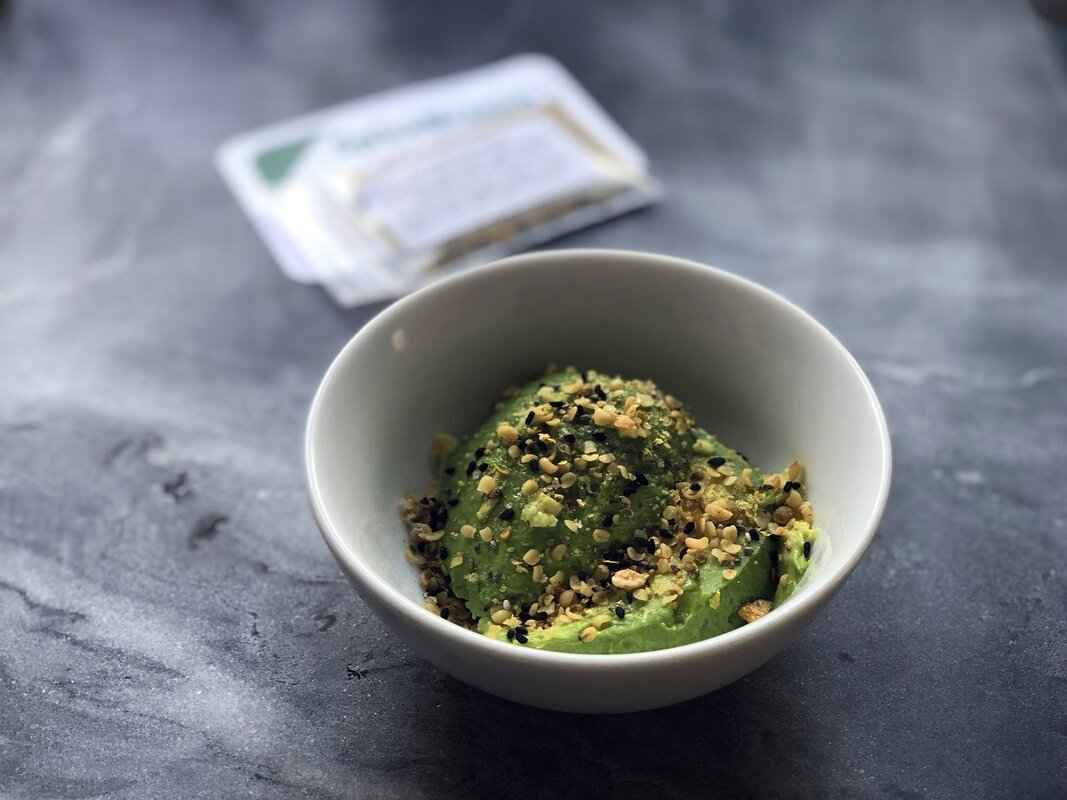Chia seeds have emerged as a popular addition to health-conscious diets, thanks to their impressive nutritional profile. These tiny seeds, derived from the Salvia hispanica plant, are packed with essential nutrients that contribute to overall wellness. In this article, we will explore the myriad health benefits of chia seeds and provide practical tips on how to incorporate them into your daily meals.
Chia seeds are often celebrated as a superfood due to their rich content of omega-3 fatty acids, dietary fiber, protein, and essential minerals such as calcium and magnesium. Just a two-tablespoon serving of chia seeds contains:
- 11 grams of fiber
- 4 grams of protein
- 18% of the daily recommended intake of calcium
- 30% of the daily recommended intake of magnesium
This combination of nutrients not only supports metabolic health but also enhances overall vitality.
The high fiber content in chia seeds is particularly beneficial for digestive health. Fiber aids in promoting regular bowel movements and preventing constipation. Furthermore, the soluble fiber in chia seeds forms a gel-like substance when mixed with water, which can help to slow digestion and keep you feeling fuller for longer.
Chia seeds are an excellent source of omega-3 fatty acids, specifically alpha-linolenic acid (ALA), which is known to support heart health. Regular consumption may help lower blood pressure, reduce inflammation, and improve cholesterol levels, thereby decreasing the risk of cardiovascular diseases.
If you’re looking to manage your weight, chia seeds can be a valuable addition to your diet. Their high fiber content promotes a sense of fullness, which can lead to reduced calorie intake. Incorporating chia seeds into meals can help curb cravings and support weight loss efforts.
Rich in calcium, phosphorus, and magnesium, chia seeds play a crucial role in maintaining bone health. These nutrients are essential for bone density and strength, making chia seeds an excellent dietary choice for those concerned about osteoporosis.
Chia seeds are also loaded with antioxidants, which help combat oxidative stress in the body. These antioxidants protect cells from damage and may reduce the risk of chronic diseases, including cancer. Including chia seeds in your diet can enhance your body’s ability to fight off free radicals.
Incorporating chia seeds into your daily meals is simple and versatile. Here are some practical ideas:
- Add them to smoothies for a nutrient boost.
- Mix them into oatmeal or yogurt for added texture.
- Use them as an egg substitute in baking (1 tablespoon of chia seeds mixed with 2.5 tablespoons of water equals one egg).
- Sprinkle them on salads or soups for extra crunch.
While chia seeds are generally safe for most people, it’s important to consume them in moderation. Excessive intake can lead to digestive discomfort, such as bloating or gas. To avoid these issues, start with a small amount and gradually increase your intake.
In conclusion, chia seeds are a nutrient-dense food that can significantly enhance your overall health. By understanding their benefits and incorporating them into your diet, you can take a significant step towards achieving optimal wellness.

What Are Chia Seeds?
Chia seeds are remarkable little seeds that come from the Salvia hispanica plant, which is native to the regions of Mexico and Guatemala. These tiny seeds can be either black or white and have gained immense popularity in recent years due to their impressive nutritional profile and numerous health benefits. Historically, chia seeds were a staple food for ancient civilizations such as the Aztecs and Mayans, who valued them for their ability to provide sustained energy and nourishment.
In today’s health-conscious world, chia seeds are often regarded as a superfood. They are packed with essential nutrients that can contribute significantly to overall health. One of the key reasons for their acclaim is their high content of omega-3 fatty acids, which are known for their anti-inflammatory properties and role in heart health. Additionally, chia seeds are an excellent source of dietary fiber, which aids in digestion and helps maintain a healthy weight.
Chia seeds are often referred to as a nutritional powerhouse because they are loaded with various essential nutrients. A single ounce (about 28 grams) of chia seeds contains:
- 11 grams of fiber
- 4 grams of protein
- 5 grams of omega-3 fatty acids
- 18% of the recommended daily intake of calcium
- 30% of the recommended daily intake of magnesium
This impressive nutrient density makes chia seeds an ideal addition to a balanced diet, especially for those seeking plant-based sources of nutrition.
The high fiber content in chia seeds plays a crucial role in supporting digestive health. Fiber is essential for promoting regular bowel movements and preventing constipation. When chia seeds are soaked in liquid, they absorb up to 12 times their weight, forming a gel-like substance that can help improve gut health by acting as a prebiotic, nourishing the beneficial bacteria in the gut.
Chia seeds are rich in a variety of nutrients that contribute to overall well-being. In addition to omega-3 fatty acids and fiber, they are a good source of antioxidants, which help protect the body from oxidative stress. The presence of essential minerals such as phosphorus and zinc further enhances their nutritional value, making them a versatile addition to any diet.
Research has shown that the omega-3 fatty acids in chia seeds can significantly improve heart health. These healthy fats help reduce inflammation, lower blood pressure, and improve cholesterol levels. Incorporating chia seeds into your diet may lower the risk of heart disease and promote better cardiovascular health.
Chia seeds can be a valuable ally in weight management due to their ability to absorb water and expand in the stomach, promoting a feeling of fullness. This property can help reduce overall calorie intake and assist in weight loss efforts. Adding chia seeds to meals can make it easier to control hunger and maintain a healthy diet.
Rich in calcium, phosphorus, and magnesium, chia seeds can positively influence bone health. These minerals are crucial for maintaining bone density and strength, making chia seeds an excellent dietary choice for individuals concerned about osteoporosis or other bone-related issues.
Chia seeds are loaded with antioxidants that combat oxidative stress in the body. By protecting cells from damage, these antioxidants can help reduce the risk of chronic diseases, including cancer. Including chia seeds in your diet can bolster your body’s defenses against various health issues.
Incorporating chia seeds into your diet is simple and versatile. They can be added to smoothies, oatmeal, yogurt, or baked goods. You can also use them as a thickening agent in recipes or sprinkle them on salads for added crunch and nutrition. Their neutral flavor makes them easy to blend into a variety of dishes.
While chia seeds are generally safe for most people, consuming them in excess can lead to digestive discomfort. It’s essential to introduce them gradually into your diet, especially if you are not accustomed to high-fiber foods. Staying hydrated while consuming chia seeds is also crucial to prevent any gastrointestinal issues.

Why Are Chia Seeds Considered a Superfood?
Chia seeds have gained immense popularity in recent years, often hailed as a superfood. This designation stems from their impressive nutritional profile, which is packed with essential nutrients that support overall health and wellness. But what exactly makes chia seeds so special? In this section, we will delve deeper into the reasons why chia seeds are considered a superfood and how they can benefit your health.
Chia seeds are a rich source of several vital nutrients, including:
- Omega-3 Fatty Acids: These essential fats are crucial for heart health and reducing inflammation.
- Fiber: Chia seeds contain a significant amount of dietary fiber, which aids in digestion and promotes a feeling of fullness.
- Protein: They are a great plant-based protein source, making them an excellent choice for vegetarians and vegans.
- Minerals: Chia seeds are high in calcium, magnesium, and phosphorus, all of which are important for bone health.
- Antioxidants: These compounds help protect the body from oxidative stress and reduce the risk of chronic diseases.
The combination of these nutrients contributes to various health benefits. For instance, the high fiber content in chia seeds supports digestive health by promoting regular bowel movements. Additionally, the omega-3 fatty acids play a crucial role in heart health by helping to lower blood pressure and improve cholesterol levels.
Another reason chia seeds are considered a superfood is their potential role in weight management. The high fiber content helps to create a feeling of fullness, which can reduce overall calorie intake. This makes chia seeds a popular choice for those looking to lose or maintain weight.
Chia seeds are also beneficial for bone health due to their high mineral content. They are particularly rich in calcium, which is essential for maintaining bone density and strength. Including chia seeds in your diet can be a proactive step towards preventing conditions like osteoporosis.
Incorporating chia seeds into your diet is simple and versatile. Here are a few easy ways to enjoy them:
- Add them to smoothies for an extra nutrient boost.
- Mix them into oatmeal or yogurt for added texture and nutrition.
- Use chia seeds as a thickening agent in soups or sauces.
- Incorporate them into baked goods like muffins or bread.
In summary, the combination of essential nutrients found in chia seeds—such as omega-3 fatty acids, fiber, protein, and minerals—contributes to their status as a superfood. By incorporating chia seeds into your diet, you can enjoy a range of health benefits that support overall wellness.

How Do Chia Seeds Support Digestive Health?
Chia seeds, often hailed as a nutritional powerhouse, are not only versatile but also packed with health benefits, particularly for digestive health. Their high fiber content is a significant factor contributing to improved digestion and overall gut health.
The high fiber content in chia seeds plays a crucial role in promoting digestive health. With approximately 10 grams of fiber per ounce, these tiny seeds are a fantastic source of both soluble and insoluble fiber. This dual fiber content aids in various digestive processes:
- Promotes Regular Bowel Movements: The soluble fiber in chia seeds absorbs water and forms a gel-like substance in the digestive tract. This gel helps to bulk up stool, making it easier to pass and thus promoting regular bowel movements.
- Supports Gut Health: Insoluble fiber acts as a prebiotic, feeding the beneficial bacteria in the gut. A healthy gut microbiome is essential for overall digestive health, as it aids in nutrient absorption and helps prevent gastrointestinal disorders.
- Reduces Constipation: By increasing stool bulk and promoting regularity, chia seeds can help alleviate constipation. Their ability to absorb water also means they can help soften stools, making them easier to pass.
In addition to these benefits, chia seeds are known for their ability to maintain satiety. When consumed, they expand in size, creating a feeling of fullness that can help control appetite. This is particularly beneficial for those looking to manage their weight while ensuring they receive adequate fiber intake.
Moreover, chia seeds are gluten-free, making them an excellent choice for individuals with gluten sensitivities or celiac disease. Incorporating them into a gluten-free diet can help enhance fiber intake without the discomfort associated with gluten.
Integrating chia seeds into your daily meals is simple and convenient. Here are some practical ways to include them:
- Smoothies: Add a tablespoon of chia seeds to your morning smoothie for a nutrient boost.
- Oatmeal: Stir chia seeds into your oatmeal or overnight oats for added texture and fiber.
- Baking: Use chia seeds in baked goods, such as muffins or bread, to enhance their nutritional profile.
- Puddings: Create a delicious chia seed pudding by mixing chia seeds with milk or a milk alternative and letting it sit until it thickens.
When consuming chia seeds, it’s important to drink plenty of water. Due to their ability to absorb liquid, insufficient hydration can lead to digestive discomfort. Start with small amounts and gradually increase your intake to allow your body to adjust.
In summary, chia seeds are a remarkable addition to a balanced diet, especially for those looking to improve their digestive health. Their high fiber content not only promotes regular bowel movements but also supports a healthy gut microbiome. By incorporating chia seeds into your meals, you can enjoy their numerous benefits while enhancing your overall wellness.

What Nutrients Are Found in Chia Seeds?
Chia seeds, often hailed as a nutritional powerhouse, are small but mighty seeds that pack an impressive array of essential nutrients. These tiny black or white seeds, derived from the Salvia hispanica plant, have been a staple in traditional diets for centuries and are now celebrated worldwide for their health benefits. Let’s explore the remarkable nutrient profile of chia seeds and understand why they are considered a superfood.
- Omega-3 Fatty Acids: Chia seeds are one of the richest plant sources of omega-3 fatty acids, particularly alpha-linolenic acid (ALA). These healthy fats are crucial for heart health, as they help reduce inflammation and lower cholesterol levels.
- Protein: With about 4 grams of protein per 2 tablespoons, chia seeds provide a substantial amount of this essential macronutrient. This makes them an excellent option for vegetarians and vegans looking to boost their protein intake.
- Dietary Fiber: Chia seeds are a fantastic source of dietary fiber, containing around 11 grams per ounce. This high fiber content aids in digestion, promotes a feeling of fullness, and supports gut health.
- Calcium: A serving of chia seeds provides about 18% of the recommended daily intake of calcium, making them a great choice for those looking to strengthen their bones and teeth.
- Magnesium: Chia seeds are also rich in magnesium, which plays a vital role in over 300 biochemical reactions in the body, including muscle function and energy production.
- Antioxidants: These seeds are loaded with antioxidants, which help combat oxidative stress and protect the body from damage caused by free radicals. This property is essential for reducing the risk of chronic diseases.
The combination of these nutrients makes chia seeds not only beneficial for overall health but also an excellent addition to various diets. Whether you’re looking to improve your heart health, manage your weight, or enhance your bone density, incorporating chia seeds into your meals can be a simple yet effective strategy.
Chia seeds can easily be added to smoothies, yogurt, oatmeal, or baked goods, making them a versatile ingredient in your kitchen. They can also be used to create chia pudding, a popular and nutritious snack that is both delicious and satisfying.
In summary, the impressive nutrient profile of chia seeds—rich in omega-3 fatty acids, protein, fiber, calcium, magnesium, and antioxidants—makes them a valuable addition to any diet. By understanding their benefits and incorporating them into your meals, you can take significant steps towards achieving better health and well-being.

How Can Chia Seeds Enhance Heart Health?
Chia seeds, often hailed as a superfood, offer a plethora of health benefits, particularly for heart health. Among their many attributes, the omega-3 fatty acids found in chia seeds are especially noteworthy. These essential fats play a critical role in maintaining cardiovascular wellness. But how exactly do they contribute to heart health?
First and foremost, chia seeds are a rich source of alpha-linolenic acid (ALA), a type of omega-3 fatty acid. Research indicates that ALA can significantly reduce inflammation throughout the body. Chronic inflammation is a key contributor to various heart diseases, and by consuming chia seeds, you may help mitigate this risk. The anti-inflammatory properties of omega-3s can lead to improved overall heart function and reduced risk of heart attacks.
Additionally, chia seeds can help in lowering blood pressure. High blood pressure is a major risk factor for heart disease and stroke. Studies have shown that diets rich in omega-3 fatty acids can lead to lower blood pressure levels. By incorporating chia seeds into your daily diet, you can contribute to maintaining a healthy blood pressure range.
Another significant benefit of chia seeds is their ability to improve cholesterol levels. Regular consumption of chia seeds has been linked to increased levels of high-density lipoprotein (HDL), often referred to as “good” cholesterol. HDL helps remove other forms of cholesterol from your bloodstream, thereby reducing the risk of heart disease. Conversely, chia seeds can also aid in lowering levels of low-density lipoprotein (LDL) cholesterol, which is known as “bad” cholesterol. This dual action makes chia seeds a valuable addition to any heart-healthy diet.
Moreover, chia seeds are packed with fiber, which is another essential component for heart health. Fiber aids in regulating cholesterol levels and can help prevent the buildup of plaque in arteries. By promoting healthy digestion and regular bowel movements, fiber also contributes to overall cardiovascular health.
Incorporating chia seeds into your diet is simple and versatile. You can sprinkle them on salads, mix them into smoothies, or add them to baked goods. When soaked in liquid, chia seeds form a gel-like substance, making them an excellent thickening agent for puddings and sauces. This unique property not only enhances the texture of your dishes but also boosts their nutritional content.
For those concerned about heart health, it’s essential to remember that chia seeds should be part of a balanced diet. While they offer numerous health benefits, they are most effective when combined with other healthy lifestyle choices, such as regular exercise and a diet rich in fruits, vegetables, and whole grains.
In summary, the omega-3 fatty acids in chia seeds play a vital role in enhancing heart health by reducing inflammation, lowering blood pressure, and improving cholesterol levels. By incorporating these tiny seeds into your daily routine, you can take significant steps towards maintaining a healthy heart and overall well-being.

Are Chia Seeds Beneficial for Weight Management?
Chia seeds have surged in popularity in recent years, particularly among those seeking effective strategies for weight management. These tiny seeds, packed with an impressive array of nutrients, have been recognized for their ability to assist in weight loss efforts. But how exactly do they contribute to this goal?
One of the primary reasons chia seeds are effective in promoting weight loss is their remarkable fiber content. With approximately 10 grams of fiber per ounce, chia seeds can significantly increase your daily fiber intake. This high fiber content plays a crucial role in enhancing satiety, which is the feeling of fullness after eating. When you consume chia seeds, they absorb water and expand in your stomach, creating a gel-like substance that helps you feel full for longer periods. As a result, you may find yourself consuming fewer calories throughout the day.
Moreover, the gelatinous texture that chia seeds develop when soaked in liquid contributes to their weight management benefits. This unique property not only slows down the digestion of food but also helps regulate blood sugar levels. By stabilizing blood sugar, chia seeds can prevent the spikes and crashes that often lead to cravings and overeating. This makes them an excellent addition to meals, particularly for those who struggle with managing their appetite.
In addition to their fiber content, chia seeds are a source of plant-based protein. Protein is known to be more satiating than carbohydrates or fats, which means that incorporating protein-rich foods into your diet can help curb hunger pangs. By adding chia seeds to your meals or snacks, you can increase your protein intake without adding excessive calories. This is particularly beneficial for individuals aiming to lose weight while maintaining muscle mass.
Another factor to consider is the caloric density of chia seeds. Despite being high in fiber and protein, they are relatively low in calories. This means you can enjoy a nutrient-dense food that supports your weight loss goals without consuming large amounts of calories. For instance, adding a tablespoon of chia seeds to your morning smoothie or yogurt can enhance its nutritional profile without significantly increasing the caloric content.
To incorporate chia seeds into your diet effectively, consider the following options:
- Add them to smoothies for a nutritious boost.
- Mix chia seeds into oatmeal or yogurt for added texture and nutrition.
- Use them as an egg substitute in baking by mixing one tablespoon of chia seeds with three tablespoons of water.
- Sprinkle chia seeds on salads or soups for an extra crunch.
While chia seeds offer numerous benefits for weight management, it is essential to consume them in moderation. Excessive intake can lead to digestive discomfort due to their high fiber content. It is advisable to start with a small amount and gradually increase your intake to allow your digestive system to adjust.
In conclusion, chia seeds can be a valuable ally in your weight management journey. Their high fiber content, satiating properties, and low caloric density make them an excellent choice for those looking to lose weight. By incorporating chia seeds into a balanced diet, you can enhance your nutritional intake while supporting your weight loss efforts.

How Do Chia Seeds Impact Bone Health?
Chia seeds, often hailed as a superfood, are not only versatile and easy to incorporate into various dishes but also boast an impressive nutritional profile that significantly contributes to bone health. The presence of essential minerals such as calcium, phosphorus, and magnesium in chia seeds plays a vital role in supporting bone density and strength, making them a valuable addition to the diets of those concerned about conditions like osteoporosis.
Calcium is a critical mineral for maintaining bone structure and strength. A single ounce of chia seeds provides approximately 18% of the recommended daily intake of calcium. This mineral is essential not only for bone health but also for muscle function and nerve signaling. By incorporating chia seeds into your diet, you can help ensure adequate calcium intake, especially if you are lactose intolerant or follow a vegan lifestyle.
Phosphorus, another key mineral found in chia seeds, works alongside calcium to build and maintain strong bones. It helps in the formation of bone and teeth, playing a crucial role in the body’s energy production and utilization. An ounce of chia seeds contains about 27% of the daily recommended intake of phosphorus, making them an excellent choice for those looking to enhance their bone health.
Magnesium, often overlooked, is equally important for bone health. It assists in converting vitamin D into its active form, which in turn helps absorb calcium. Chia seeds offer a substantial amount of magnesium, providing about 24% of the daily recommended intake per ounce. Adequate magnesium levels are associated with higher bone mineral density, reducing the risk of fractures and osteoporosis.
In addition to these minerals, chia seeds are also rich in omega-3 fatty acids, which have anti-inflammatory properties that can further support bone health. Chronic inflammation can lead to bone loss, and by consuming chia seeds, individuals can help combat this issue. The combination of these nutrients in chia seeds not only aids in maintaining bone density but also contributes to overall skeletal health.
For those looking to incorporate chia seeds into their diet, there are numerous creative ways to do so. Here are some suggestions:
- Add chia seeds to smoothies for an extra nutritional boost.
- Sprinkle them on top of yogurt or oatmeal for added texture and health benefits.
- Use chia seeds as a thickening agent in soups and sauces.
- Incorporate them into baked goods such as muffins and bread.
- Make chia pudding by soaking the seeds in milk or a milk alternative overnight.
It’s important to note that while chia seeds are beneficial for bone health, moderation is key. Overconsumption can lead to digestive discomfort. Starting with a small amount and gradually increasing your intake can help your body adjust.
In conclusion, chia seeds are a powerhouse of nutrients that significantly impact bone health. Their rich content of calcium, phosphorus, and magnesium, combined with other beneficial compounds, makes them an excellent dietary choice for anyone looking to enhance their bone density and overall health.

What Are the Antioxidant Properties of Chia Seeds?
Chia seeds have garnered significant attention in the health community, not only for their impressive nutrient profile but also for their remarkable antioxidant properties. These tiny seeds, derived from the Salvia hispanica plant, are packed with powerful compounds that play a crucial role in protecting our bodies from oxidative stress.
What Are Antioxidants? Antioxidants are molecules that help neutralize free radicals in the body. Free radicals are unstable atoms that can cause cellular damage, leading to various chronic diseases, including cancer, heart disease, and neurodegenerative disorders. By combating oxidative stress, antioxidants help maintain cellular health and overall well-being.
How Do Chia Seeds Contribute to Antioxidant Defense? Chia seeds are rich in several types of antioxidants, including quercetin, kaempferol, and chlorogenic acid. These compounds work synergistically to protect the body from inflammation and cellular damage. Research suggests that the high antioxidant content in chia seeds can significantly reduce oxidative stress levels in the body.
- Quercetin: Known for its anti-inflammatory properties, quercetin helps reduce the risk of chronic diseases by combating oxidative stress.
- Kaempferol: This antioxidant has been linked to various health benefits, including improved heart health and reduced cancer risk.
- Chlorogenic Acid: Found in many plant foods, this compound supports metabolic health and may help regulate blood sugar levels.
Why Are Antioxidants Important? Incorporating foods high in antioxidants, like chia seeds, can be a proactive approach to health. Antioxidants help to:
- Protect Cells: They safeguard cells from damage caused by free radicals.
- Reduce Inflammation: Chronic inflammation is linked to numerous health issues; antioxidants can help mitigate this.
- Lower Disease Risk: A diet rich in antioxidants is associated with a lower risk of chronic diseases.
How Can You Maximize the Antioxidant Benefits of Chia Seeds? To fully harness the antioxidant power of chia seeds, consider the following tips:
1. Soak chia seeds in water or milk to enhance nutrient absorption.2. Add them to smoothies, salads, or yogurt for a nutritional boost.3. Use chia seeds as an egg substitute in baking for added health benefits.
Are There Any Limitations? While chia seeds are a fantastic source of antioxidants, it’s essential to consume them in moderation. Excessive intake may lead to digestive discomfort. As with any food, balance is key.
In summary, chia seeds are a nutrient-dense superfood that offers significant antioxidant properties, contributing to overall health by combating oxidative stress and reducing the risk of chronic diseases. Incorporating these tiny seeds into your diet can be a simple yet effective way to enhance your nutritional intake and support long-term wellness.

How Can You Incorporate Chia Seeds into Your Diet?
Chia seeds are not only nutrient-dense but also incredibly versatile, making them an ideal addition to a variety of meals and snacks. Here are some creative ways to incorporate these tiny powerhouses into your daily diet:
- Smoothies: Add a tablespoon of chia seeds to your favorite smoothie recipe. They blend well and enhance the drink’s nutritional profile without altering the flavor.
- Oatmeal: Stir chia seeds into your morning oatmeal for added texture and a boost of fiber. They can absorb liquid, making your oatmeal even creamier.
- Baked Goods: Incorporate chia seeds into muffins, pancakes, or bread. They can replace eggs in vegan recipes when mixed with water, acting as a binding agent.
- Chia Pudding: Mix chia seeds with milk (dairy or plant-based) and let them sit overnight to create a delicious pudding. You can flavor it with vanilla, cocoa, or fruit for a tasty dessert.
- Salads: Sprinkle chia seeds on top of salads for a crunchy texture. They are a great way to add nutrition without overpowering the dish.
- Thickening Agent: Use chia seeds as a natural thickening agent in soups and sauces. When soaked in liquid, they expand and create a gel-like consistency.
- Energy Bars: Make homemade energy bars or granola by mixing chia seeds with nuts, dried fruits, and a binding agent like honey or maple syrup.
- Yogurt: Stir chia seeds into yogurt for a nutritious snack. They not only add fiber but also enhance the texture.
When incorporating chia seeds into your meals, it’s important to start with small amounts, especially if you’re new to them. This will help your digestive system adjust to the increased fiber intake. A recommended serving size is about 1-2 tablespoons per day.
Additionally, it’s crucial to soak chia seeds before consuming them. This enhances their digestibility and allows your body to absorb the nutrients more effectively. You can soak them in water or any liquid of your choice for about 15-30 minutes before adding them to your dishes.
Chia seeds are also an excellent option for those following a gluten-free or plant-based diet, as they provide essential nutrients without any allergens. Their ability to absorb liquid makes them a fantastic ingredient for creating vegan recipes.
In summary, chia seeds are a simple yet effective way to enhance the nutritional value of your meals. With their versatility and health benefits, they can easily fit into your daily diet, providing you with essential nutrients while adding texture and flavor to your favorite dishes. Experiment with different recipes and find the best ways to enjoy chia seeds as part of a balanced diet.

Are There Any Potential Side Effects of Chia Seeds?
Chia seeds have gained immense popularity in recent years, recognized for their numerous health benefits and impressive nutritional profile. However, as with any food, it is essential to consider potential side effects, especially for those who are new to incorporating them into their diet. This section delves into the possible side effects of chia seeds and offers guidance on how to enjoy them safely.
While chia seeds are generally safe for most individuals, consuming them in excess can lead to some digestive discomfort. The high fiber content in chia seeds can cause bloating, gas, or even constipation if introduced too quickly into the diet. This is particularly true for those who are not accustomed to a high-fiber diet.
To minimize the risk of gastrointestinal problems, it is advisable to introduce chia seeds gradually into your meals. Start with a small amount, such as one teaspoon, and gradually increase the quantity over time as your body adjusts. Additionally, it is crucial to consume adequate water when eating chia seeds, as they absorb liquid and expand in the stomach, which can help prevent any potential discomfort.
Individuals with certain medical conditions, such as irritable bowel syndrome (IBS) or those who are prone to gastrointestinal issues, should exercise caution. It is also advisable for individuals on blood-thinning medications to consult with a healthcare professional before adding chia seeds to their diet, as the omega-3 fatty acids in chia seeds can have a blood-thinning effect.
Though rare, some individuals may experience allergic reactions to chia seeds. Symptoms can include itching, swelling, or respiratory issues. If you suspect an allergy, it is crucial to seek medical advice promptly.
Chia seeds can interact with certain medications, particularly those that affect blood sugar levels and anticoagulants. If you are taking medications for diabetes or blood thinners, consult with your healthcare provider to ensure that chia seeds can be safely included in your diet.
- Start Small: Begin with a small serving size, such as one teaspoon, and gradually increase.
- Stay Hydrated: Drink plenty of water to help chia seeds expand properly in your stomach.
- Monitor Your Body: Pay attention to how your body reacts and adjust your intake accordingly.
- Consult a Professional: If you have existing health conditions or concerns, it’s best to seek advice from a healthcare professional.
In summary, while chia seeds offer a wealth of health benefits, it is essential to be mindful of potential side effects, especially if you are new to them. By introducing chia seeds gradually and ensuring proper hydration, most individuals can enjoy their nutritional advantages without experiencing discomfort.
Frequently Asked Questions
- What are the main health benefits of chia seeds?
Chia seeds offer numerous health benefits, including improved digestive health due to their high fiber content, enhanced heart health from omega-3 fatty acids, and support for weight management by promoting a feeling of fullness.
- How can I incorporate chia seeds into my meals?
You can easily add chia seeds to your diet by mixing them into smoothies, sprinkling them on oatmeal, or incorporating them into baked goods. They can also be used as a thickening agent in recipes!
- Are there any side effects of consuming chia seeds?
While chia seeds are generally safe, consuming them in excess may lead to digestive discomfort. It’s best to start with small amounts and gradually increase your intake to avoid gastrointestinal issues.
- How do chia seeds support bone health?
Chia seeds are rich in essential minerals like calcium, phosphorus, and magnesium, which contribute to bone density and strength, making them an excellent choice for maintaining healthy bones.
- Can chia seeds help with weight loss?
Yes! The high fiber content in chia seeds helps you feel fuller for longer, which can lead to reduced calorie intake and support your weight loss goals.














